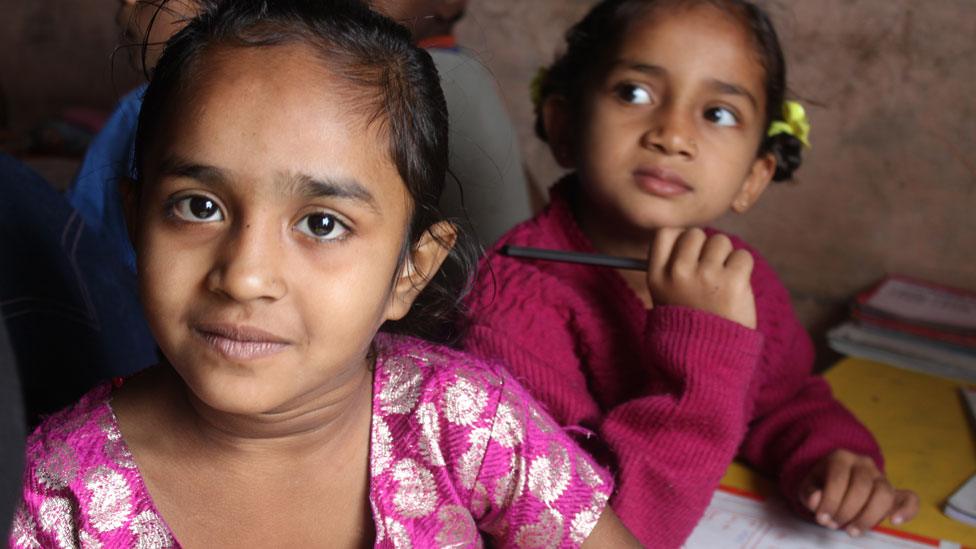Boris Johnson gets angry about girls' education
- Published
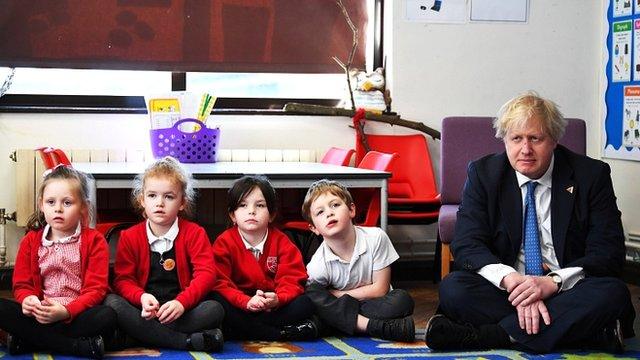
Boris Johnson says that fair access to education is the key to global progress
Boris Johnson says improving education for girls could be the single most effective intervention in some of the world's poorest and most troubled countries.
He wants people to be "angry" rather than "complacent" about girls missing out on school because of discrimination.
"It's the key to unlocking so many other problems," said the foreign secretary, promising that supporting efforts to raise standards in education, particularly for girls, would be a new priority for the UK's international efforts.
"In countries where there is poverty, civil war, that have massive population booms, that are prey to radicalisation, the common factor is female illiteracy, the under-education of women and girls," said Mr Johnson, on a visit to a primary school in Hastings, East Sussex.
"I don't think that people know how stark that problem is and the damage it is doing," Mr Johnson told the BBC.
Political priority
The foreign secretary said that at next month's gathering of Commonwealth leaders his priority would be the push for all countries to ensure that girls received at least 12 years of good quality education.
In countries that have the worst records on access to education, particularly in sub-Saharan Africa and parts of Asia, it is often girls who are most likely to miss out on school.
"The figures are unbelievable. In some parts of sub-Saharan Africa you've got 60%, 70%, 80% illiteracy among women," said Mr Johnson.
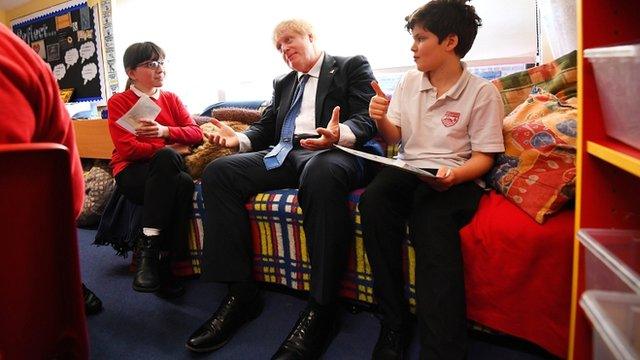
Mr Johnson told pupils that a big female inspiration was "Theresa May, obviously".
There have been previous promises from the international community to ensure that all children have access to primary school at least.
This was meant to have been achieved by 2000 - and when that target was missed it was set as a millennium development goal to be reached by 2015.
But that goal was missed too - and there were still tens of millions of children who never got to start school.
Another target has been set for 2030 - but the United Nations has already warned that is unlikely to be met and has raised other concerns that many more children are in schools of such poor quality that they leave without having learned even the basics of literacy and numeracy.
'Totally barbaric'
Mr Johnson says there needs to be tough and sustained political focus on making real progress.
"It's about raising the issue politically. It's fundamentally a political question."
He said that the failure to have equal access to education for girls was an "abomination".
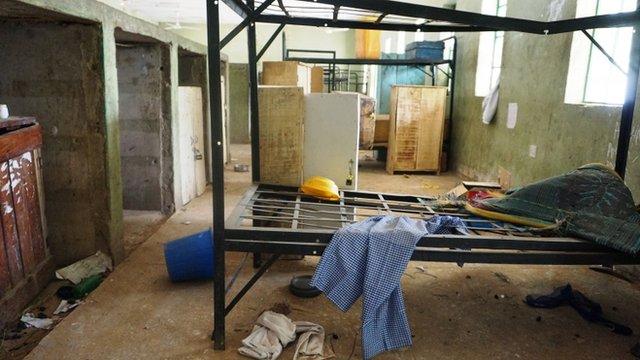
There were more abductions of students in Nigeria last month
The UK has been one of the most diligent funders of international education projects, and Mr Johnson says there needs to be an "escalation" of efforts to stop so many young people being excluded from education.
"Most of the battle is getting people to accept that there's a problem."
There were also those such as the Boko Haram in Nigeria who had attacked and abducted girls trying to get an education.
This was a "totally barbaric approach that still needs to be conquered", he said.
The foreign secretary has also been reacting to the use of a nerve agent against a former Russian spy and his daughter in Salisbury, Wiltshire.
He said there was a need to wait for the investigation, but there would be "robust action" if there was any evidence to implicate another country.
'Calling out Russia'
But were there now questions to be asked about Russian involvement in UK elections or the Brexit referendum?
"We don't have any evidence of any successful Russian meddling in any UK election," said Mr Johnson.
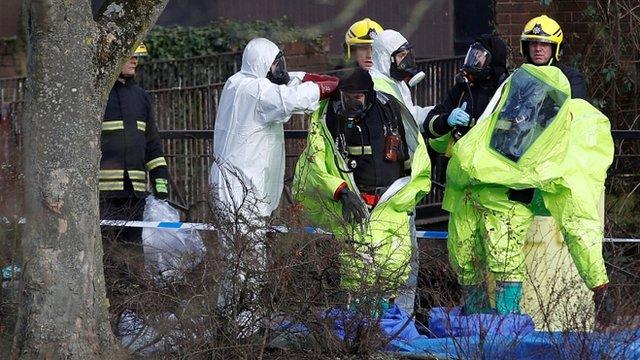
The foreign secretary said the UK had "called out" Russia on human rights
"But what I can say is that if the UK is the target of particular activities by Russia, then the explanation of that is very clear.
"It's because the UK has had the courage and the principles over the last few years to stick up for human rights, to stick up for decency, to oppose the annexation of Crimea, to insist upon sanctions and to call out Russia for what it's doing in Syria, with the use of chemical weapons.
"So that may well explain. It remains a very big 'if', but if it does prove to be at the agency of the Russians that has lead to what has happened in Salisbury, I think that would be the explanation."
Mr Johnson, visiting on International Women's Day, had been speaking at St Leonard's Church of England academy.
With the foreign secretary sitting cross legged on the floor, pupils told him about their own school's exchanges with pupils in a school in Sierra Leone.
Competitive families
Mr Johnson told them that girls missing out on education was "unfair and stupid".
"If you're going to have a successful country, you've got to have girls who are motivated, able to set up businesses - and can become prime minister," said Mr Johnson.
Asked to name any women who had inspired him, Mr Johnson replied: "Theresa May obviously".
But he also gave an insight into his competitive family dynamics.
There was one other inspiring women - and one of his earliest and most important memories, he told pupils at the school.
It was the birth of his sister. "It became obvious to me I had to work hard to keep ahead of her."
- Published11 October 2017
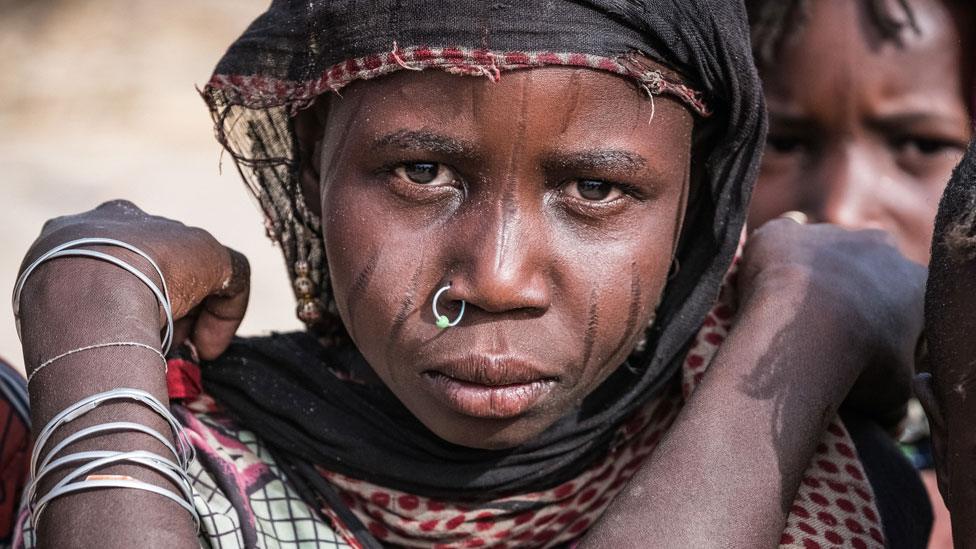
- Published3 October 2017
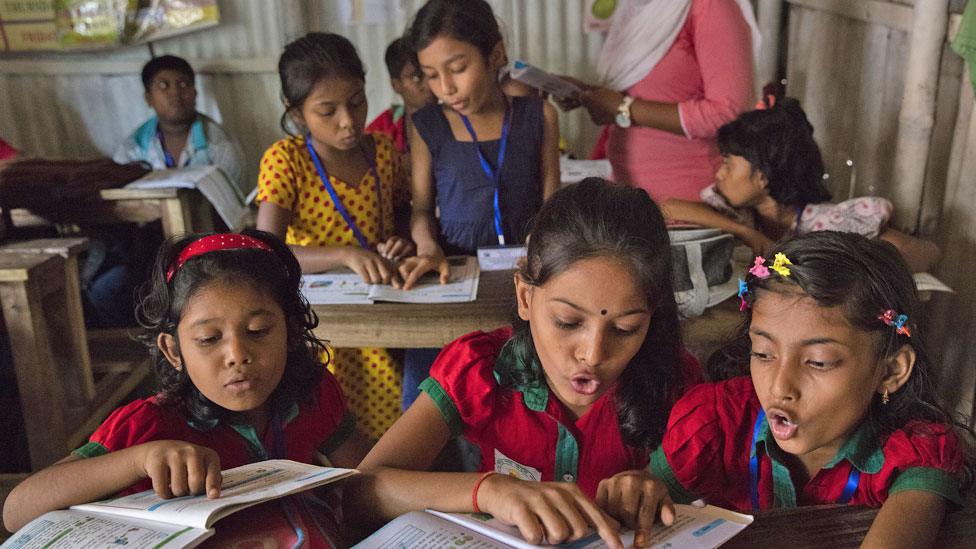
- Published20 December 2017
